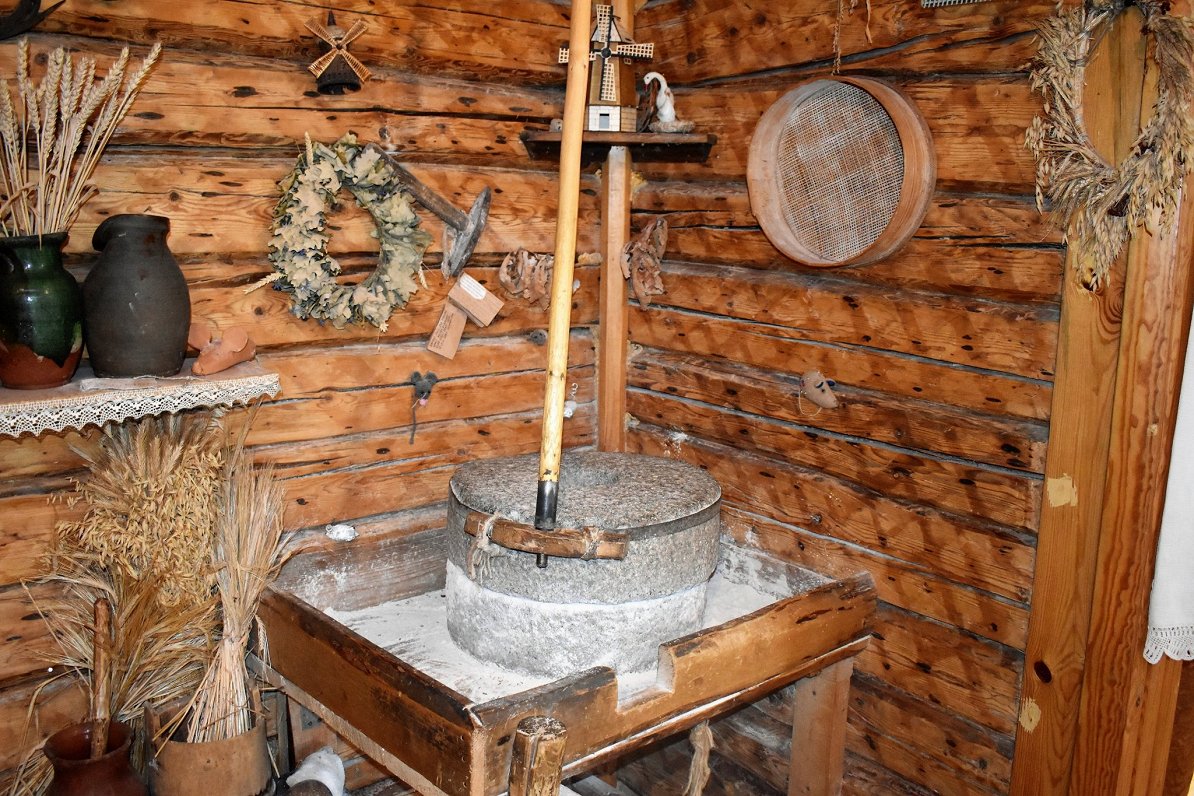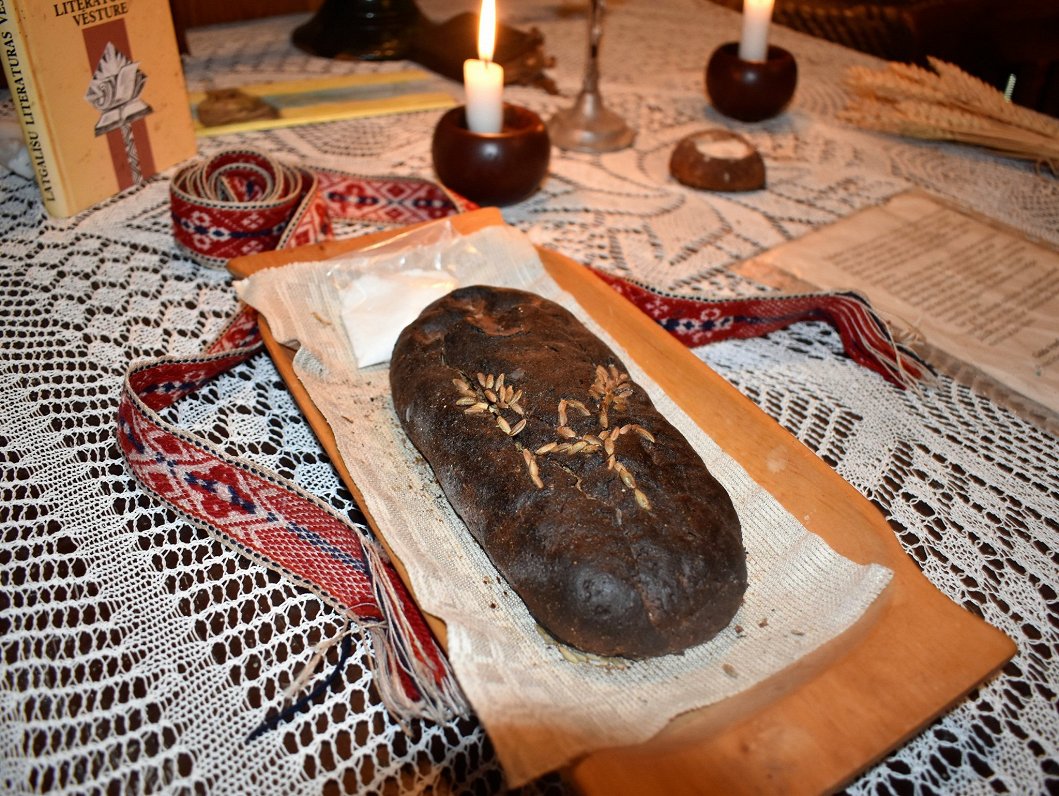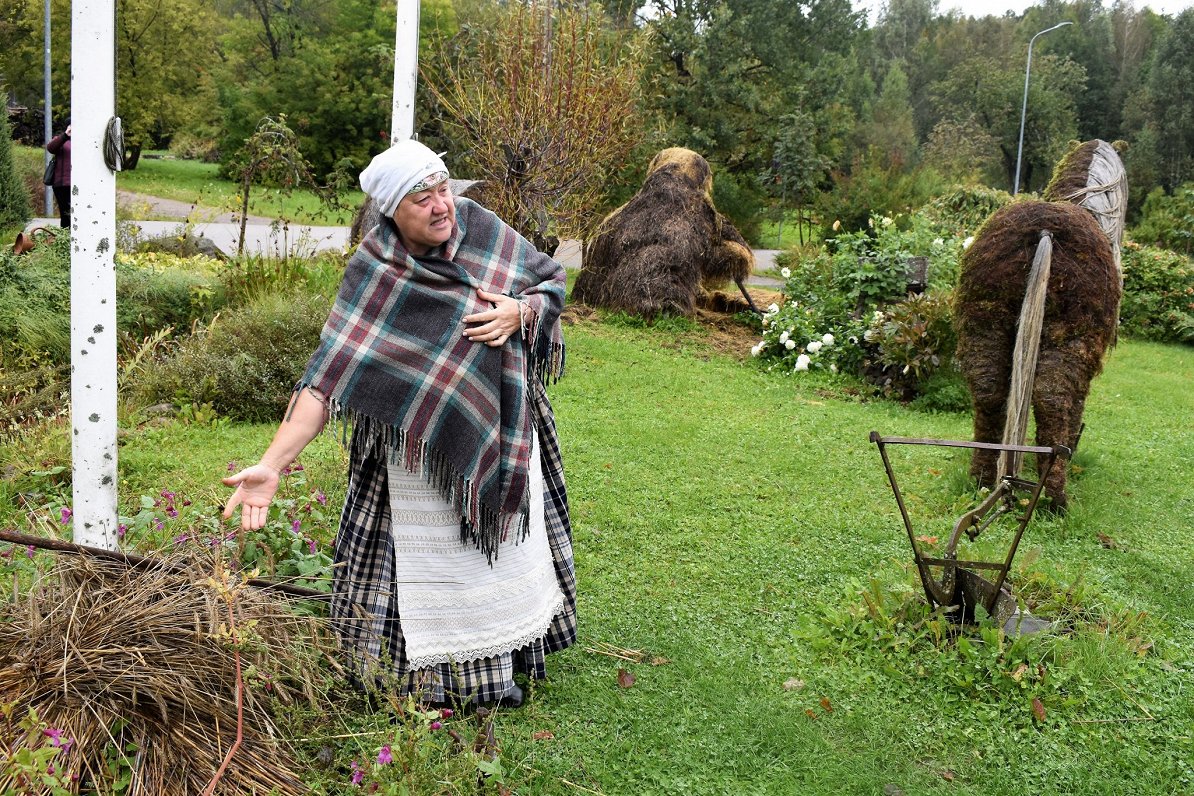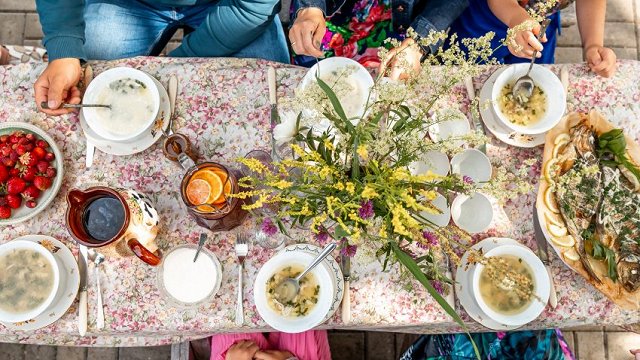Aglona’s population explodes every August as hundreds of thousands of pilgrims gather at its famous basilica, Latvia’s holiest Catholic shrine. But even when it reverts to quiet as usual, there are compelling reasons to pop over to this small Latgale town, 247 kilometres east of Riga.
The Aglona Bread Museum should be high on any visitor’s list. More than just a collection of artefacts, it is a performance space where founder Vija Kudiņa kneads together nutritional facts, folklore and good humour to tell the fascinating story of the stuff of life.
“Bread is the foundation of everything, and it’s a shame that in our modern times we don’t pay as much attention to it as in earlier days, when our ancestors toiled behind their ploughs,” she says.
“The land kept the people fed, and bread was central to that. Even today, old ladies in Latgale symbolically put bread on the table before the rest of the meal is served.”
Vija has a master’s degree in public catering, is a qualified pastry chef and has been a teacher. In 2000, she enriched her CV even more by opening a bakery in Aglona, her hometown. Its products earned high regard across Latvia, and one day, Vija told a visiting reporter that she would eventually like to have a place to tell people more about bread. To her surprise, a double page spread in a national newspaper heralded her upcoming bread museum, and she had to start gathering material.
“It really put me on the spot,” confesses Vija. “But I’ve gone from sleepless nights wondering what I’m going to say to being able to lead many groups without ever repeating myself.”

Since opening in 2015, the museum has entertained and informed thousands of wedding guests, corporate outings and curious tourists. On a recent Thursday, Vija’s audience comprised consecutive groups of primary school kids. Her energy and passion had even this challenging crowd rapt, as she took them through planting rye, making dough, baking loaves and enjoying the results, in a zesty mixture of standard Latvian and Latgalian dialect.
Her spiel is leavened with old school values.
“As you’re eating bread, remember how lucky we are to be living in peace and enjoying the fruits of our soil,” she says. “And if there’s nothing but bread in the pantry, be grateful for that too, and then tomorrow mum’s account will be unblocked, and dad will get some money, and you’ll be able to have what you like. And see how tasty it is when you savour every mouthful and don’t rush?”
In this gluten-intolerant age, Vija believes rye bread is the fount of good health, and wheat bread without preservatives won’t do any harm either. She welcomes the Covid-era boom in home baking, stressing that the right attitude is more important than getting Instagrammabble results.
“The smell of bread baking at home reminds us of the cosiness, stability and love we felt as children,” she says. “When you’re baking, if you believe the bread will bring strength and health, then it will be so. Put all your heart and soul into it, be here and now instead of having one eye on the TV.”
Vija also manages the onsite bakery, whose staff can be seen shaping loaves in a glass-fronted kitchen, as well as a small guesthouse on the premises. One day she would like to hang up her apron and collect her best bread stories in a book. For example, a friend recalled that as a student she used to visit her grandmother in the country on weekends. Grandma would give the girl a bag full of food to take back to the city, and on one occasion added a loaf of rye bread so heavy the youngster could barely lift it.
“Don’t worry, my dear,” cooed the wise old woman. “You won’t have to carry the bread – the bread will carry you.”

































